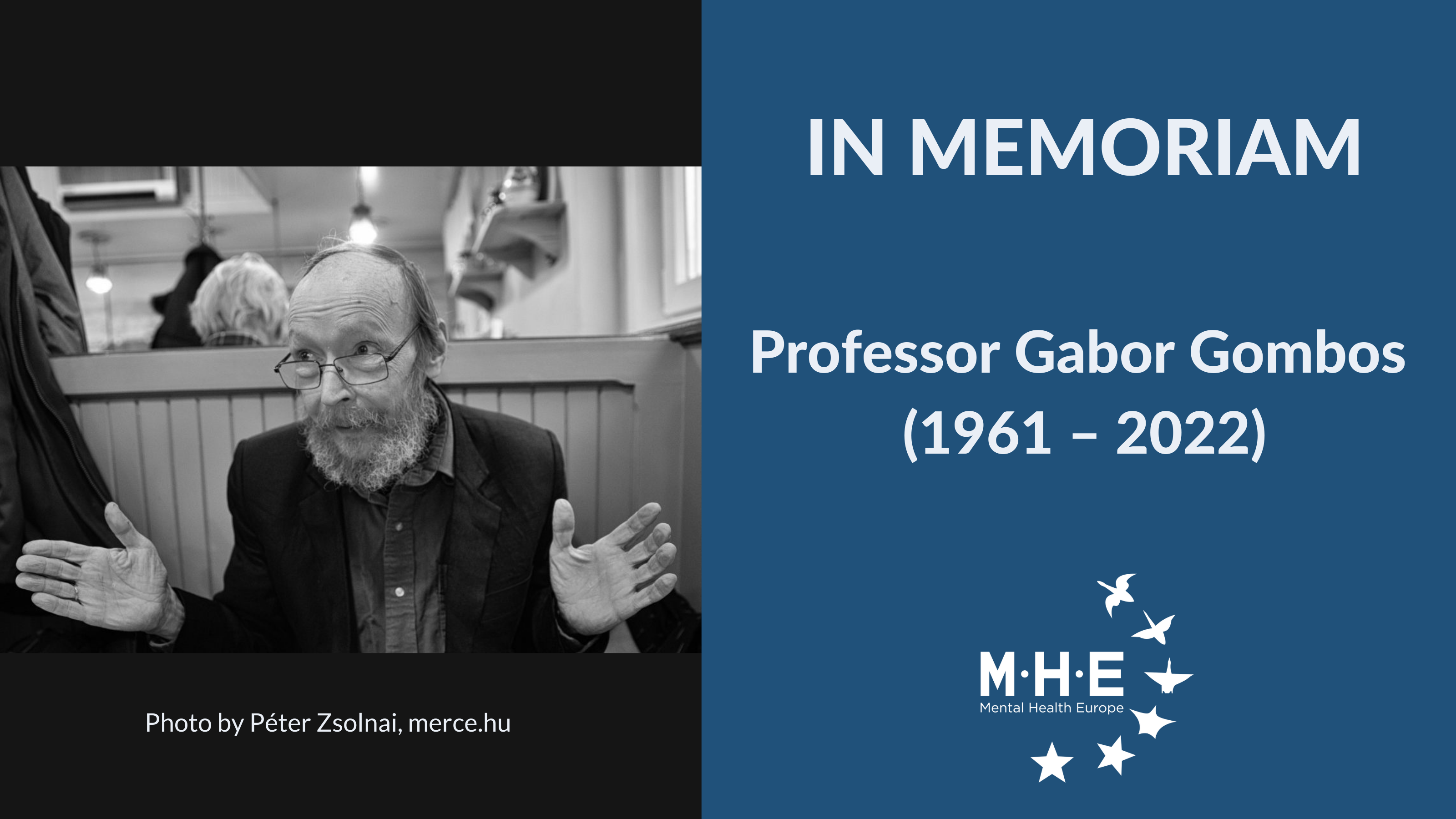In Memoriam Gabor Gombos (1961 – 2022)

Mental Health Europe (MHE) received the sad news that Gabor Gombos – a leading expert and activist on the rights of person with disabilities – passed away on Monday 6 June 2022 in Budapest, Hungary. Human rights are at the core of our work and MHE has lost a major contributor to the paradigm shift from the medical to the psychosocial model of disability.
Gabor was born in Pécs, Hungary in 1961. After growing up in Pécs, he went on to work as a theoretic physicist in Budapest. A human rights lawyer by vocation, he made an impact on Hungarian and international human rights. Gabor was one of the pioneers who developed the United Nations Convention on Rights of People with Disabilities (UN CRPD). In particular, Gabor created international legal standards reflected in General Comment no. 1 to the UN CRPD framing the right to legal capacity for all people with disabilities in absolute terms.
The idea that all people shall have equal rights to determine their own future by themselves, regardless of any form of disability, was close to Gabor´s heart. It is thanks to his work that we now have one of the most advanced international laws, which is often mentioned by activists, professionals and politicians across the globe. Gabor served as a Member of the UN CRPD Committee in the period between 2010 to 2012. He was also the founder of the first organisation led by survivors of psychiatry in Hungary.
In 2019, he told the Hungarian media outlet merce.hu about his early years as an advocate:
“I had my own experience in psychiatric care, so I saw a lot of things that were horrible. At first, I told myself, okay, but the people who work there want to help, and because of scarce resources and other reasons, terrible things can happen. But the first time I was in a psychiatric hospital, one of the young men next to me was put in a caged bed, locked up. I tried to explain to myself that he was obviously behind bars because he needed to be protected. But when my mother died in suspicious circumstances in psychiatric care, I was certain that I could no longer look in the mirror if I kept quiet.
Look, a lot of people have seen and are seeing what happens in many psychiatric hospitals. And still, no one really wants to see it. But if yourself or a family member has been confronted with what happens to people, it’s no longer a choice, it’s a necessity that you act. I had no choice in that respect, I had to take action.”
Gabor was also a researcher, who focused on the human rights in long-term care institutions in Hungary and provided valuable insights in how damaging institutionalisation of persons with disabilities can be. He was proud of being recognised as a professor, not of physics (his original profession) but of law, after the University of Ireland in Galway bestowed upon him the title of Honorary Professor.
Gabor Gombos will be remembered by Mental Health Europe for his achievements and contributions in the development of human rights international law. We will always be proud that he was a part of our movement. We remember him quoting his words from an interview he gave to merce.hu in 2019:
Journalist: When you criticise psychiatry, you are opposing scientific expertise with moral, often rosy ideas of legal protection. Or is this opposition not real?
Gabor Gombos: That is right, it is a false opposition. A methodological error. The scientific knowledge you mention is not in opposition to the criticisms we make. The other error is logical: it is reductionism. When Aldous Huxley, in his novel Brave New World (1931), described the ways in which science might be able to influence human society, we knew even less than we do today about the human brain. Yet, readers understood why the world Huxley described was a scary place. Although in a different context, Huxley’s novel touches on the essence of what you asked about: in psychiatry we seem to be talking about ostensibly scientific or technological issues, we are actually talking about much more. In Huxley’s novel this reductionism is put into practice. He writes about why it is dangerous to think of things as purely scientific or technological. Let me give you another example. Can the smell of a rose be traced back to chemical elements? Let’s suppose I trace it back to elements in the lab, and I describe the smell of a rose as a set of chemical elements and coefficients. If I can do this, can I claim that the smell of a rose is reducible to chemical elements? I think not. No, because if I refer to the smell of a rose in a poem, for example, it will have a whole host of meanings that have nothing, nothing to do with chemistry. And it shouldn’t.
We are grateful to Gabor Gombos, a great colleague and a friend, for his leadership and dedication to advance human rights standards in Europe and internationally. We will remember Professor Gabor Gombos as a thoughtful and generous researcher and activist, advancing relentlessly a human rights centred approach across the globe.
Stay connected
Get our latest news, personal stories, research articles, and job opportunities.